What is the plan for unblocking the Suez Canal?
International trade hit as freight vessel becomes wedged across vital shipping route
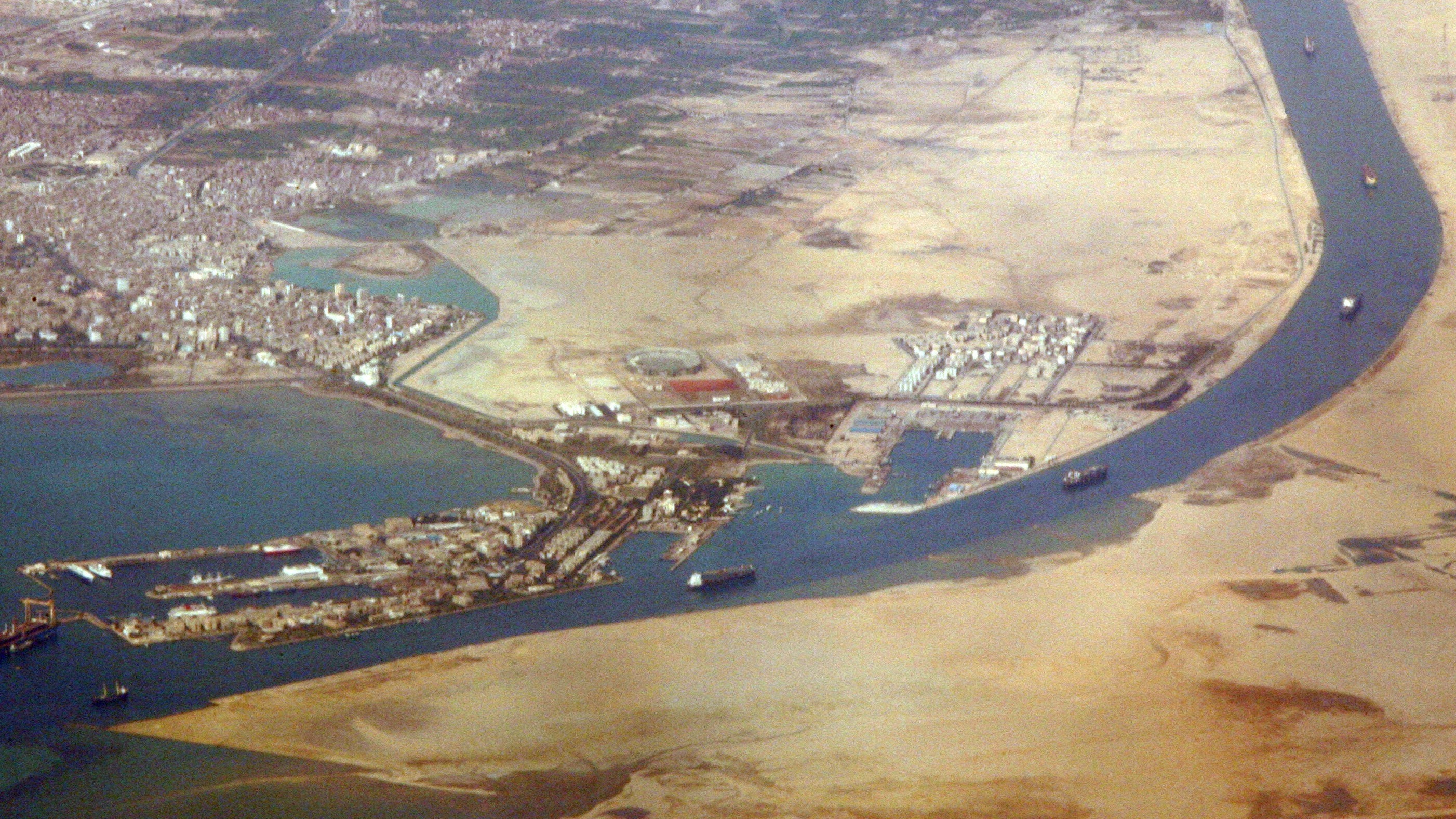
A free daily email with the biggest news stories of the day – and the best features from TheWeek.com
You are now subscribed
Your newsletter sign-up was successful
Eight tugboats are working to dislodge the large freight ship that has been wedged across the Suez Canal for three days, bringing one of the world’s most important trade routes to a grinding halt.
The 400m container vessel, named the Ever Given, remains “jammed bank-to-bank” across the 200m-wide shipping lane, Sky News reports, leaving tankers queuing in the Red Sea and the Mediterranean, with little indication of when they will be able to continue their journeys.
“Imagine the Shard wedged across Horse Guards Parade”, the broadcaster says. That is the “scale of the engineering challenge of unblocking the Suez Canal”.
The Week
Escape your echo chamber. Get the facts behind the news, plus analysis from multiple perspectives.

Sign up for The Week's Free Newsletters
From our morning news briefing to a weekly Good News Newsletter, get the best of The Week delivered directly to your inbox.
From our morning news briefing to a weekly Good News Newsletter, get the best of The Week delivered directly to your inbox.
Rescue mission
The current theory is that high winds knocked the Ever Given off course, causing it to become wedged sideways across the waterway. But figuring out exactly “how it got there will be the job of the decade for marine accident investigators”, Sky News says.
For now, the most important question is how to get it out and release the backlog of around 165 vessels currently queuing to access the vital trade route.
“Egyptian tugboats backed by an international team of salvage experts” are currently racing “to rebalance the 224,000-tonne ship” in the hope that a high tide will “create enough extra draught to free it”, The Telegraph reports.
A free daily email with the biggest news stories of the day – and the best features from TheWeek.com
The Suez Canal Authority (SCA) has drafted in Smit Salvage, a Dutch maritime recovery firm, to help with the effort, with ten experts arriving on site from the Netherlands last night.
However, if the current plan fails, the team “may have to wait for a higher spring tide expected on the weekend” or begin “unloading some of the fully laden ship's containers in order to lighten it”, the paper adds, which could take “days or even weeks in the absence of dockside infrastructure”.
The 270,000-tonne freighter was on its way to Rotterdam when it became stuck, and refloating the massive vessel is “technically very complicated”, a senior canal pilot at the SCA told CNN.
The pilot, who spoke on the condition of anonymity, said that “if the method is not correct it might take a week, and if it's done well it might take two days. But if it had been correct [in the first place], then the crisis could have ended yesterday”.
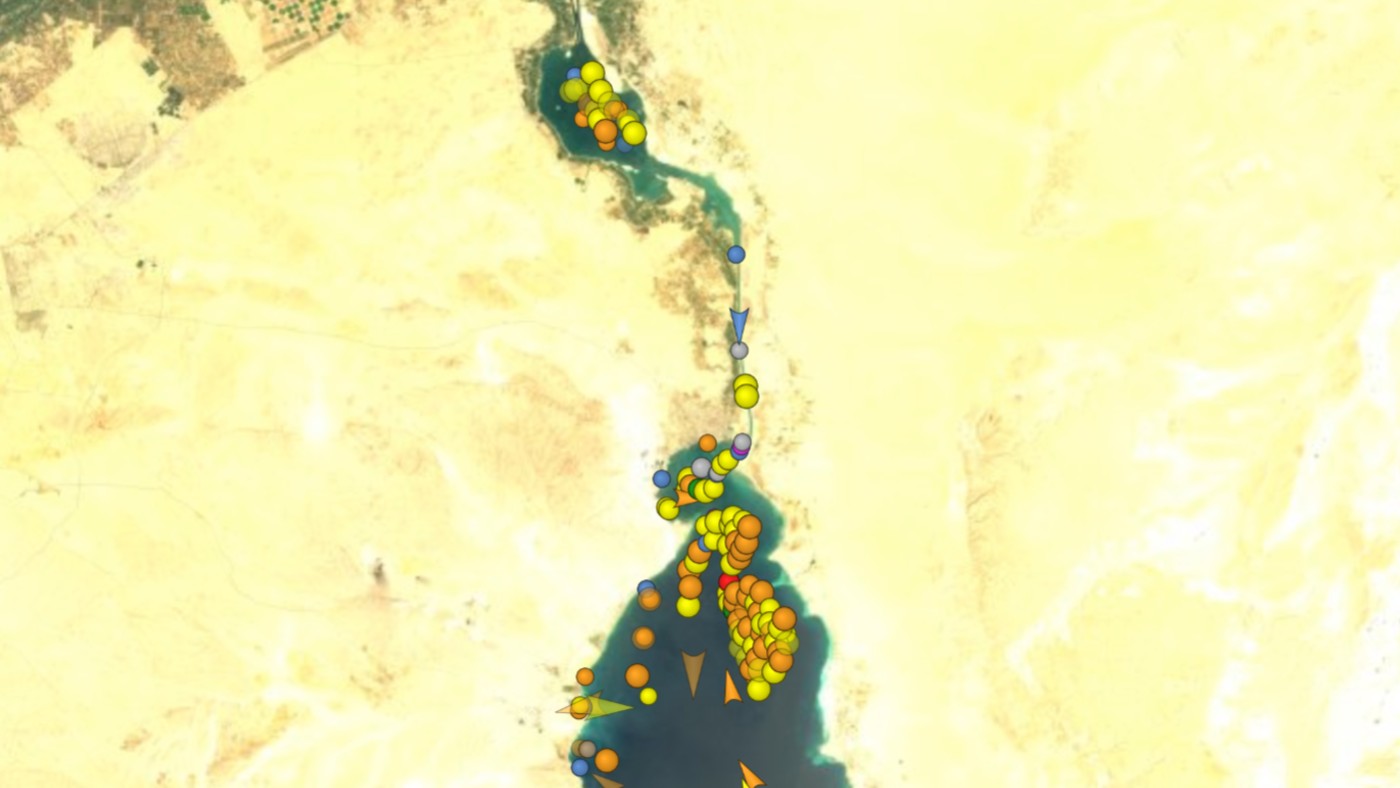
The Ever Given is also “unlikely to be able to sail now and will probably need to be towed to the nearest parking site”, CNN adds, a time-consuming process that the pilot said would likely mean an additional “two to three days” before normal traffic is restored.
Should refloating fail, “an alternative would be to dig out a wide ‘turning circle’ in the soft sandbanks that line the canal”, The Telegraph says. However, “that too would take time and equipment”.
“You really have to do the calculations to understand how solidly she [is] grounded, and how much power you can exert without damaging the vessel,” Martijn Schuttevaer, a spokesman for Boskalis, the company that owns Smit Salvage, told the paper.
Vital artery
Unblocking the passage is key to restoring trade routes already disrupted by a year of international coronavirus restrictions. Around 12% of world trade passes through the canal, making it “by far the world’s most important maritime passageway”, according to maritime transport expert Ahmed al-Shami.
Al-Shami told Middle East Eye that “problems in it will have their toll on international trade” as the canal is the main route for fuel from the Gulf States bound for Europe and from Russia, via Crimea, to east Asia.
Fears over the blockage have already been reflected in crude oil prices, which rose by 1.6% yesterday, with “$10bn-worth of goods set to join the jam every day”, The Telegraph reports. European manufacturers whose supply chains “rely on ‘just in time’ parts deliveries are particularly exposed”, the paper adds.
There are alternative routes available to shipping vessels should the Ever Given take longer than expected to become dislodged. Due to an “increase in piracy off the coast of Somalia”, some companies have already begun “taking the long way around Africa, via the Cape of Good Hope”, which is one alternative, New Scientist reports.
The trade passage was blocked for eight years in 1967, when Israeli forces occupied the Sinai peninsula, including the entire east bank of the Suez Canal, during the Six-Day War. Egypt immediately imposed a blockade that closed the canal to all shipping, leaving 15 cargo ships, known as the “Yellow Fleet”, trapped until 1975.
“There are about 50 ships that go through the canal north and south every day, and because these are massive ships that is an enormous amount of trade”, Dr Laleh Khalili, professor of international politics at Queen Mary University of London, told Sky News.
“Millions of gallons of oil, millions of tonnes of manufactured goods, hundreds of thousands of containers are going through the canal in any given week”, she added.
Whether it takes days or weeks to shift the Ever Given, the mistake is not one that will sit well on its captain’s resume.
Joe Evans is the world news editor at TheWeek.co.uk. He joined the team in 2019 and held roles including deputy news editor and acting news editor before moving into his current position in early 2021. He is a regular panellist on The Week Unwrapped podcast, discussing politics and foreign affairs.
Before joining The Week, he worked as a freelance journalist covering the UK and Ireland for German newspapers and magazines. A series of features on Brexit and the Irish border got him nominated for the Hostwriter Prize in 2019. Prior to settling down in London, he lived and worked in Cambodia, where he ran communications for a non-governmental organisation and worked as a journalist covering Southeast Asia. He has a master’s degree in journalism from City, University of London, and before that studied English Literature at the University of Manchester.
-
 The ‘ravenous’ demand for Cornish minerals
The ‘ravenous’ demand for Cornish mineralsUnder the Radar Growing need for critical minerals to power tech has intensified ‘appetite’ for lithium, which could be a ‘huge boon’ for local economy
-
 Why are election experts taking Trump’s midterm threats seriously?
Why are election experts taking Trump’s midterm threats seriously?IN THE SPOTLIGHT As the president muses about polling place deployments and a centralized electoral system aimed at one-party control, lawmakers are taking this administration at its word
-
 ‘Restaurateurs have become millionaires’
‘Restaurateurs have become millionaires’Instant Opinion Opinion, comment and editorials of the day
-
 How will China’s $1 trillion trade surplus change the world economy?
How will China’s $1 trillion trade surplus change the world economy?Today’s Big Question Europe may impose its own tariffs
-
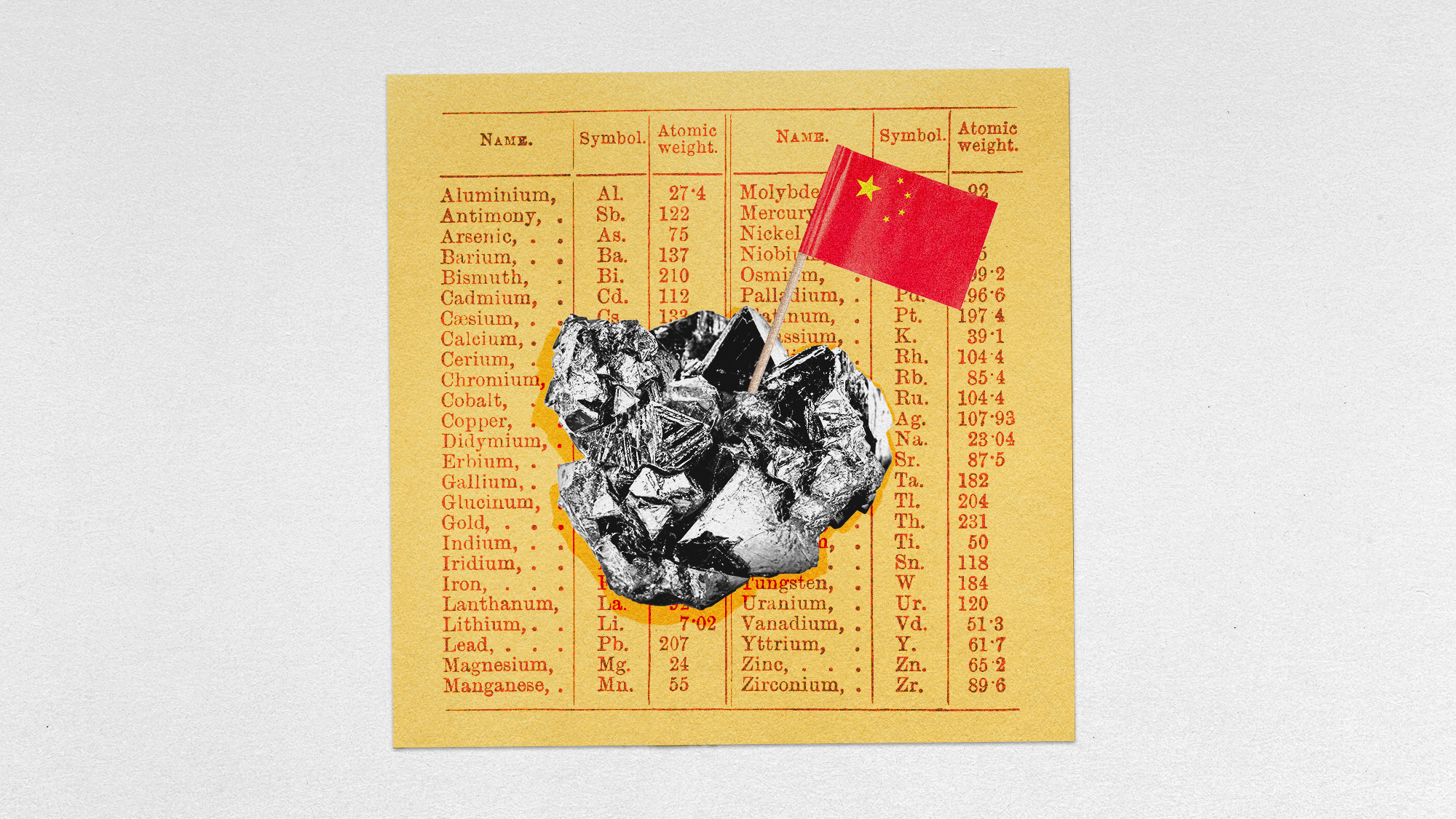 China’s rare earth controls
China’s rare earth controlsThe Explainer Beijing has shocked Washington with export restrictions on minerals used in most electronics
-
 Why the world's busiest shipping routes are under threat
Why the world's busiest shipping routes are under threatThe Explainer Political tensions, mega ships and global warming offer new challenges – and opportunities
-
 The UK-US trade deal: what was agreed?
The UK-US trade deal: what was agreed?In Depth Keir Starmer's calm handling of Donald Trump paid off, but deal remains more of a 'damage limitation exercise' than 'an unbridled triumph'
-
 Trump vs. China: another tariff U-turn?
Trump vs. China: another tariff U-turn?Today's Big Question Washington and Beijing make huge tariff cuts, as both sides seek 'exit ramp' from escalating trade war
-
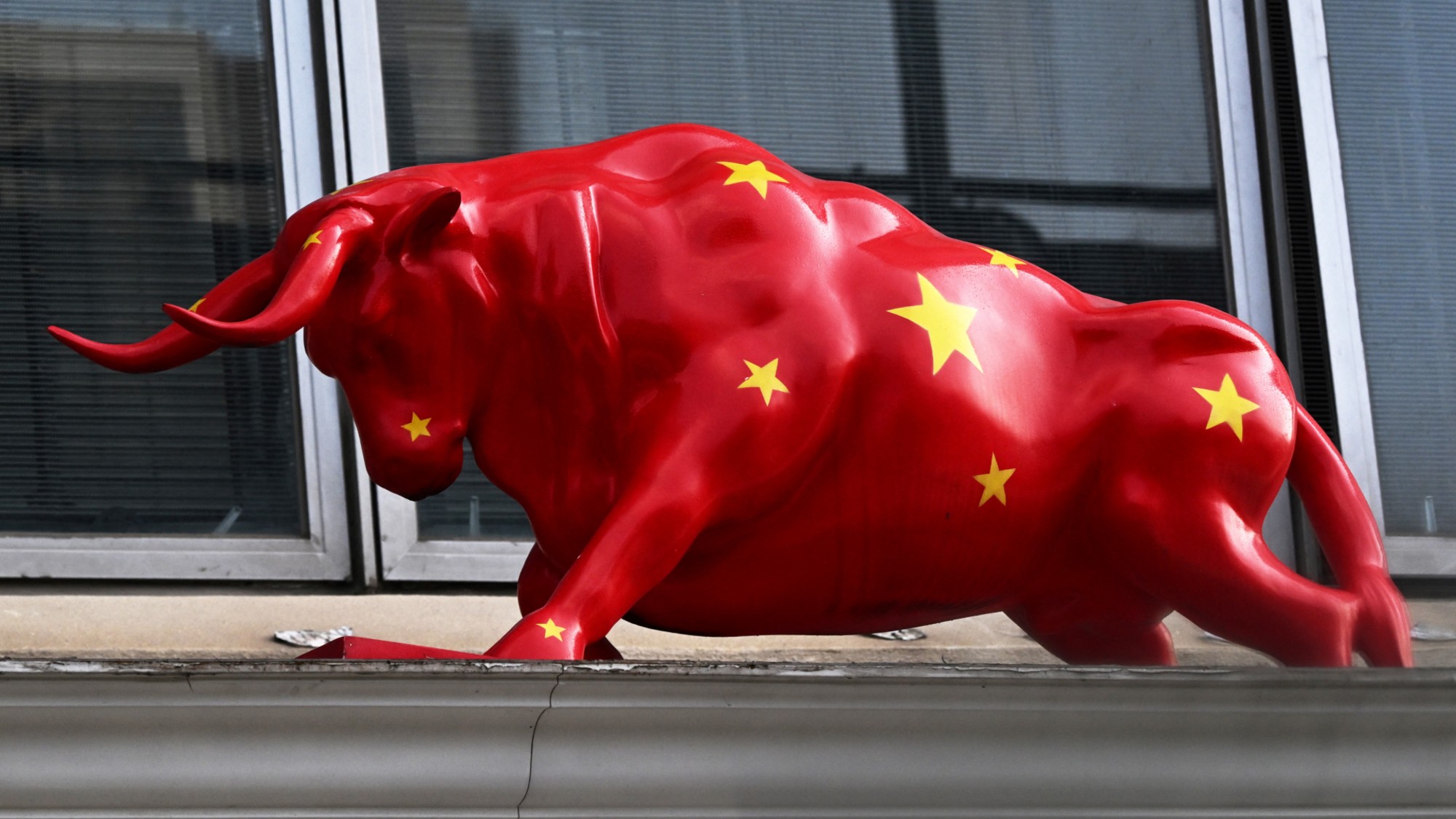 Who would win in a China-US trade war?
Who would win in a China-US trade war?Today's Big Question Tariff pain will be higher for China but Beijing is betting it can weather the storm
-
 Lesotho: the tiny African nation in the crosshairs of Trump's tariff war
Lesotho: the tiny African nation in the crosshairs of Trump's tariff warUnder the Radar US president imposes 50% reciprocal levy on the impoverished state: the highest of his so-called 'Liberation Day' tariffs
-
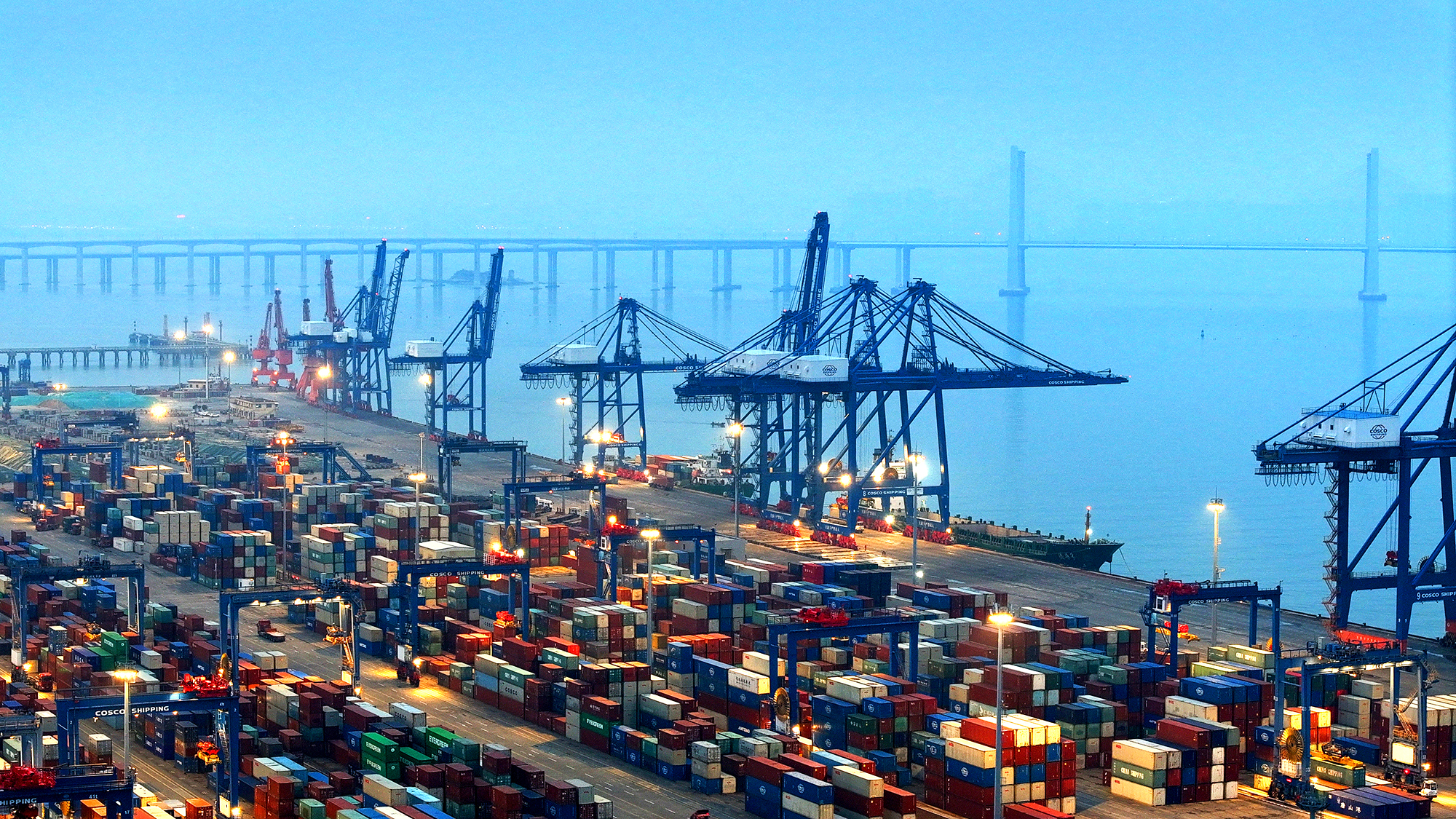 Is this the end of globalisation?
Is this the end of globalisation?Today's Big Question American-led post-war order is 'finally starting to crumble' but that could bring about 'a more inclusive world'